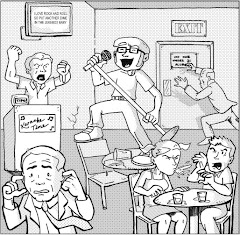Ex Machina: The First Hundred Days, 2005, Wildstorm Productions
writer: Brian K. Vaughan
penciller: Tony Harris
inker: Tom Feister
colorist: JD Mettler
letterer: Jared K. Fletcher
In my opinion, the best "Elseworlds" stories produced by DC Comics were the yarns that tweaked a minute aspect of continuity to produce a plot just this side of parallel with the original sequence of events. Alan Davis' Justice League: The Nail is a perfect example, as its compelling entanglement of cosmic events all spun from what would happen if the Kents' truck suffered from a flat tire and they didn't usher a superman into the world. Ex Machina accomplishes this twist of fate on real, recent history, exploring how contemporary pop culture and politics would react if a flying man that could talk to machines burst onto the scene -- you know, a superhero.
While the usual controversies regarding vigilantism abound in The First Hundred Days graphic novel (collateral damage, anti-establishment influence on society, etc.), contrasting these issues with contemporary tragedies like, say, September 11th, creates a sense of relevance that overwhelms a plot twist like a satellite-turned-death ray pointed at Metropolis by Brainiac, for instance. The final splash of Ex Machina #1, which depicts a post-9/11 New York with one of the two destroyed Twin Towers still standing, thanks to "the Great Machine's" intervention, is an eye-opening revelation that the existence of superheroes would change reality, but still not prevent its bitter truths.
Incidentally, as a die hard fan of Vertigo's Human Target, I was grateful to see another mainstream title (Wildstorm and Vertigo are both DC imprints, thus "mainstream" in my book) utilize the aftermath of 9/11 to create relevant, reflective stories. Christopher Chance faced a post-9/11 challenge in Human Target #s 2-3, and with Presidential hopeful Rudy Giuliani touting that fateful morning as a significant event in recent history (and it is), it should remain in the forefront of some forums as an important catalyst for introspection and speculation. Since the fall of the Twin Towers is the closest we've come to a supervillain plot in modern times, comics seem like a natural place for such legitimate art. But I digress.
This reality twist is just one of the many aspects that made these five issues of Ex Machina so enjoyable. Writer Brian K. Vaughan subtly explores the phenomenon of celebrity through a political lens, charting the transformation of simple engineer into a headlines-grabbing superhero, then from a brooding superman to a popular mayor. Indeed, Mitchell Hundred's transition from the vigilante called the Great Machine to the Mayor of New York is an incredible journey, one in which we the readership inadvertently participate thanks to those well incorporated real events, and though the challenges of his mayorship seem like the kind of comedic fodder Michael J. Fox could've effortlessly tackled in Spin City, Vaughan injects that kind of dynamic characterization that makes political strife seem less ivory tower and more dark horse. One of the subplots throughout this arc is a civic-funded piece of controversial art (a painting of Lincoln upon which the "n-word" is transcribed) -- not the usual kind of conflict catalyst comics are known for, but when the Mayor is a former superhero, his anguish over such a minor issue is at least entertaining, at best culturally relevant, and somewhat satirical. Further, since is art is arguably on the opposite end of the man's creation spectrum from technology, it's the one thing a guy that talks to machines can't really understand. Nice, Vaughan.
Tony Harris and Tom Feister are at the top of their game here, balancing expressive characterization with detailed, technically oriented design. The Great Machine's uniform is a unique blend of post-modern armory and nostalgic flight wear, rung through the ringers of Howard Hughes and Lost in Space, and with a story seasoned by the potentially unpredictable behavior of machines, Harris maintains a dramatic sense of sequencing that makes each scene very easy to follow. For a yarn spun from both the hallowed halls of Gotham's mayoral offices and the 9/11 era terror of the New York skyline, artistic integrity and consistency is important. Of course, having cut his teeth on Starman, Harris knows a thing or two about having his head in the clouds. Fortunately, thanks in part to Vaughan's script, his feet are firmly planted and this inaugural arc gets Ex Machina up and running. It's a splendid blend of visual and narrative storytelling.
I mentioned Giuliani earlier, because, as our world is desperate for its heroes, many are desperate to appoint themselves to the role, particularly in the context of our contemporary tragedies. Though it isn't my place to categorize the former Mayor's place in history, and whether or not his influence warrants a rise to the White House, the contrast to Hundred's the Great Machine is apparent. Hundred was a definitive hero first, and his political career was a natural consequence, rather than the other way around. No matter how many monkey wrenches one tries to throw into the annals of recent times, some phenomena never change -- and truth that some traits beget others certainly is one of them.
Tuesday, May 15, 2007
Subscribe to:
Post Comments (Atom)



No comments:
Post a Comment